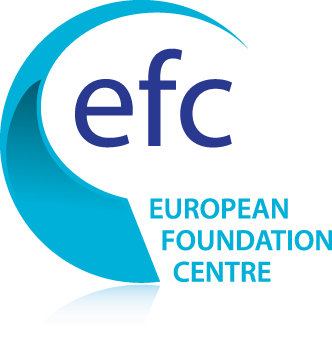About Us
Entering into force on 3 May 2008, the United Nations Convention on the Rights of Persons with Disabilities set a new perspective for those foundations active in the field of disability or human rights, providing them with a unique opportunity to put their expertise to good use in the emerging field of disability.
As a result, in 2009 a group of foundations led by the European Foundation Centre (EFC) decided to work together in the form of a Consortium to make a distinctive contribution towards mobilising the foundation sector. In February 2010 the European Consortium of Foundations on Human Rights and Disability launched its first pilot project.
|
Check out the video interview with Ms Maria Orejas-Chantelot, Disability Interest Group Coordinator at the European Foundation Centre, providing an overview of the aims and work of the LHAC. |
The League of Historical and Accessible Cities’ main aim is to improve the accessibility of historical towns promoting at the same time sustainable tourism development and the protection of cultural heritage.
The main purposes of the project are:
- To put forward innovative accessibility solutions which allow people with disabilities to fully enjoy cultural and historical heritage
- To foster tourism and the social development of the city
- To develop pilot projects that can serve as an inspiration for other foundations, local authorities and stakeholders
- To serve as a hub for exchange of best practices and know-how
- To lead by example, raise awareness, stimulate ideas and invite others to act
The project is being simultaneously implemented by 11 foundations in 5 different countries across Europe, each of them in partnership with the local authorities of the 6 historical towns involved:
- Avila (Spain) - Fundación ONCE
- Lucca (Italy) - Fondazione Banca Monte di Lucca
- Mulhouse (France) - Fondation Réunica, Fondation de France, Centre Français des Fonds et Fondations
- Torino (Italy) - Fondazione CRT
- Viborg (Denmark) - Realdania Foundation, Bevica Foundation, The Danish Disability Foundation and The Labour Market Holiday Fund
- Sozopol (Bulgaria) - Sozopol Foundation
A tourist route including interesting buildings, museums, parks, restaurants, shops and tourist information centres is being developed in the historical city centre of each member town.
It is important to note that ‘disability’ is seen in its broadest sense, including both sensory and physical impairments and disabilities, and that (following the Universal Design criteria) improvements to accessibility are conceived for the long-term benefit of all visitors, residents and tourists.
As a result, on these routes everyone will be able not only to walk around and explore the townscape independently, but also to orient themselves and to interact with their surroundings, thanks to information signs (such as tactile billboards, sign language guides and audio guides) and other interactive digital tools that will be accessible to all.
The project involves a holistic conception of accessibility, which will entail improvements in four main areas:
- The built environment and public spaces
- Transport and related infrastructures
- Information and communication, including information and communication technologies (ICT)
- Public facilities and services
The diversity of historical townscapes means that solutions for improving access cannot be standardised. Consequently, although a common methodology provided by an external specialised consultancy has been agreed, the way in which each individual country is implementing the project varies enormously, bringing additional richness and depth to the initiative. The League of Historical and Accessible Cities will produce a best design and best practice guide showcasing each individual project.
Aiming to improve social inclusion and active participation of people with disabilities through improved access to historical and cultural heritage, the League of Historical and Accessible Cities can be also seen as a good example of social innovation practice.
► Download the LHAC overview in PDF format.
► Read more about the LHAC as a social innovation example (PDF format).
| Check out the video interview with Ms Donata Vivanti, vice-president of the European Disability Forum, giving an overview of work of her organisation. |
About the UN Convention on the Rights of Persons with Disabilities
The UN Convention on the Rights of Persons with Disabilities (UNCRPD) is not only the first Convention to be adopted in the 21st century and the first international human rights instrument to be ratified by the European Communities on 29 November 2009, but it also marks the official recognition of disability as a human rights issue.
It is an international human rights treaty that sets out minimum standards for protecting and safeguarding a full range of civil, political, social, and economic rights for disabled people. It reflects the EU's broader commitment to building a barrier-free Europe for the estimated 80 million people with disabilities in the EU by 2020, as set out in the European Commission's disability strategy.
For more information visit the website of the European Disability Forum
About the Consortium on Human Rights and Disability
As a product of the Disability Thematic Network, the European Consortium of Foundations on Human Rights and Disability aims to bring together funders and other stakeholders committed to promoting the implementation of the UN Convention on the Rights of Persons with Disabilities (UNCRPD), a ground breaking international treaty which entered into force on 3 May 2008.
The Consortium’s overall aim is to breathe life and vigour into the application of the Convention, to make a distinctive contribution and to mobilise the foundation sector to play a catalytic role to ensure that European governments and other relevant stakeholders commit to and support both ratification and implementation of the Convention.
Led by the European Foundation Centre (EFC) with the participation of Fundación ONCE (Spain), Fondazione Banca del Monte di Lucca (Italy), Fondazione Cassa di Risparmio di Torino (Italy), Fondation de France, Fundação Calouste Gulbenkian (Portugal), Sabanci Foundation (Turkey), The Atlantic Philanthropies (Ireland/USA) and ESSL Foundation (Austria). The Consortium was officially launched at the European Parliament in Brussels on Wednesday 1 April 2009.
Read more about the EFC Consortium on Human Rights and Disability
About the European Foundation Centre
Established in 1989, the European Foundation Centre is an independent international not-for-profit association of foundations and corporate funders dedicated to creating an enabling legal and fiscal environment for foundations, documenting the foundation landscape, strengthening the infrastructure of the sector and promoting collaboration, both among foundations and between foundations and other actors.
The Centre is a hub for European and global philanthropists, embracing robust cooperation with an array of partners, including governments, international organisations and universities.
Read more about the European Foundation Centre